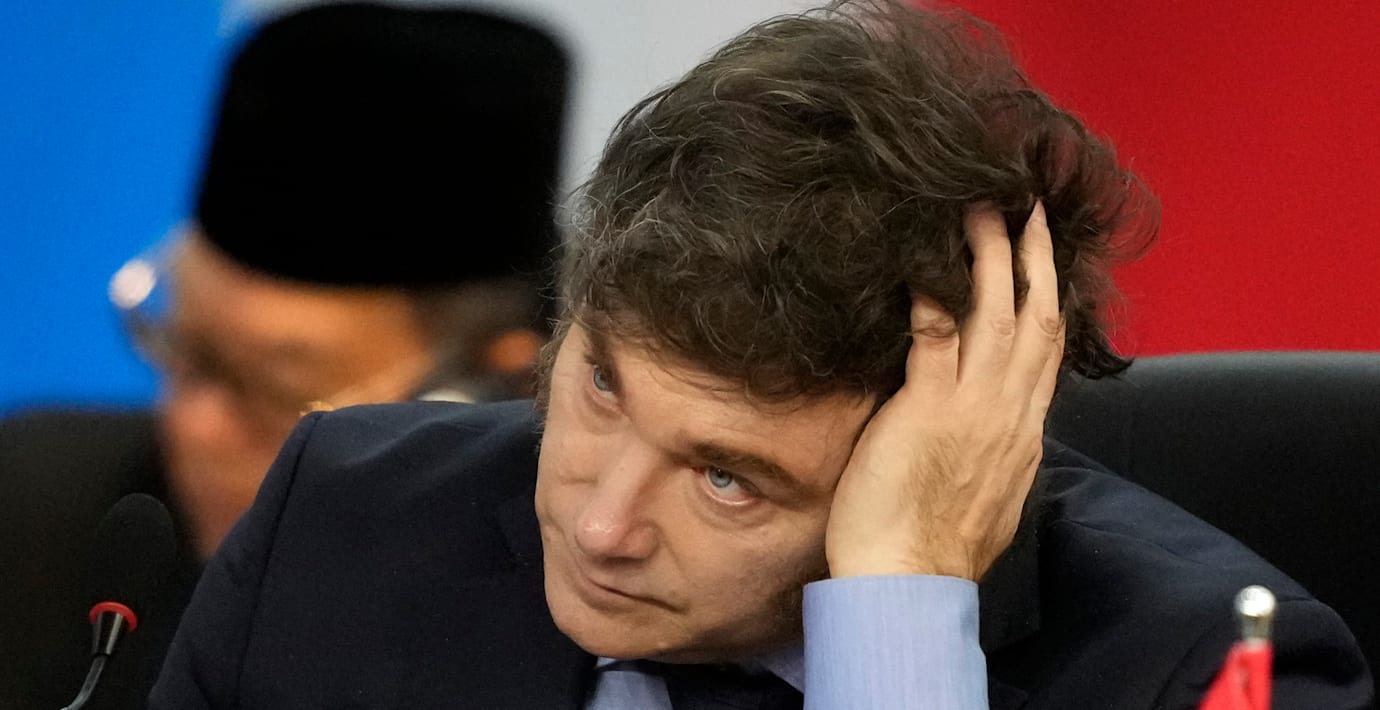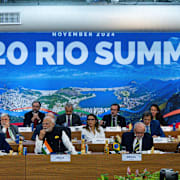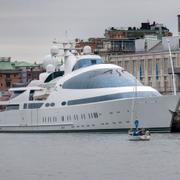
Milei skriver under – men undantar allt det viktiga
Argentinas president Javier Milei reserverar sig mot flera av de punkter som anses viktigast i G20-mötets slutdokument, rapporterar argentinska medier.
Inför toppmötet hotade presidenten med att inte underteckna dokumentet. Nu har han skrivit under, men undantar delarna om beskattning av miljardärer och ”allt som rör Agenda 2030”, alltså FN:s globala mål om hållbar utveckling, skriver Infobae. Där ingår bland annat fattigdomsbekämpning och att motverka klimatförändringarna.
Milei tänker inte hindra att övriga G20-länder ska implementera slutdokumentet, skriver hans kansli i ett uttalande. Det är dock oklart vad det får för status utan konsensus mellan medlemsländerna.
bakgrund
Globala målen
Wikipedia (sv)
Globala målen, eller de globala målen för hållbar utveckling (Sustainable Development Goals, SDG), är en del av Agenda 2030 för hållbar utveckling. De 17 globala målen för hållbar utveckling antogs av FN:s generalförsamling den 25 september 2015 i resolution A/RES/70/1, under namnet Transforming our world: the 2030 Agenda for Sustainable Development, ofta refererad till med det kortare Agenda 2030.
Idén om de globala målen startade vid Förenta nationernas konferens om hållbar utveckling 2012. Syftet är att fram till år 2030 uppnå en socialt, miljömässigt och ekonomiskt hållbar utveckling världen över. Agendan och dess mål arbetades fram och förankrades under en omfattande konsultationsprocess som av FN själva betecknades som den mest transparenta och inkluderande processen i FN:s historia. Den 25 september 2015 antog FN:s alla medlemsländer i generalförsamlingen den historiska resolutionen Agenda 2030 för hållbar utveckling.
De globala målen består av 169 delmål och 244 indikatorer. Tillsammans tar de vid där Millenniemålen nådde sitt slutdatum. Den nya agendan har år 2030 som målår; därav namnet Agenda 2030.
bakgrund
G20
Wikipedia (en)
The G20 or Group of 20 is an intergovernmental forum comprising 19 sovereign countries, the European Union (EU), and the African Union (AU). It works to address major issues related to the global economy, such as international financial stability, climate change mitigation and sustainable development, through annual meetings of Heads of State and Heads of Government.
The sovereign states of the G20 (without its international members, like the EU or AU) account for around 85% of gross world product (GWP), 75% of international trade, 56% of the global population, and 60% of the world's land area. Including the EU and AU, the G20 comprises 78.9% of global population and 83.9% of global CO2 emissions from fossil energy.
The G20 was founded in 1999 in response to several world economic crises. Since 2008, it has convened at least once a year, with summits involving each member's head of government or state, finance minister, or foreign minister, and other high-ranking officials; the EU is represented by the European Commission and the European Central Bank. Other countries, international organizations, and nongovernmental organizations are invited to attend the summits, some permanently. In 2023, during its 2023 summit, the African Union joined as its 21st member and will officially represent at the 2024 G20 summit in Brazil.
In its 2009 summit, the G20 declared itself the primary venue for international economic and financial cooperation. The group's stature has risen during the subsequent decade, and it is recognised by analysts as exercising considerable global influence; it is also criticised for its limited membership, lack of enforcement powers, and for the alleged undermining of existing international institutions. Summits are often met with protests, particularly by anti-globalization groups.
Omni är politiskt obundna och oberoende. Vi strävar efter att ge fler perspektiv på nyheterna. Har du frågor eller synpunkter kring vår rapportering? Kontakta redaktionen


